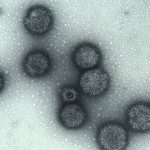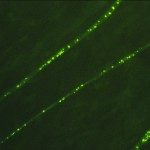Lien vers Pubmed [PMID] – 29580693
Biologicals 2018 May;53:19-29
Live attenuated vaccines have proved to be mostly valuable in the prevention of infectious diseases in humans, especially in developing countries. The safety and potency of vaccine, and the consistency of vaccine batch-to-batch manufacturing, must be proven before being administrated to humans. For now, the tests used to control vaccine safety largely involve animal testing. For live viral vaccines, regulations require suppliers to demonstrate the absence of neurovirulence in animals, principally in non-human primates and mice. In a search to reduce the use of animals and embracing the 3Rs principles (Replacement, Reduction, Refinement in the use of laboratory animals), we developed a new Blood-Brain Barrier Minibrain (BBB-Minibrain) in cellulo device to evaluate the neuroinvasiveness/neurovirulence of live Yellow Fever virus (YFV) vaccines. A pilot study was performed using the features of two distinct YFV strains, with the ultimate goal of proposing a companion test to characterize YFV neurovirulence. Here, we demonstrate that the BBB-Minibrain model is a promising alternative to consider for future replacement of YFV vaccine in vivo neurovirulence testing (see graphical abstract).



